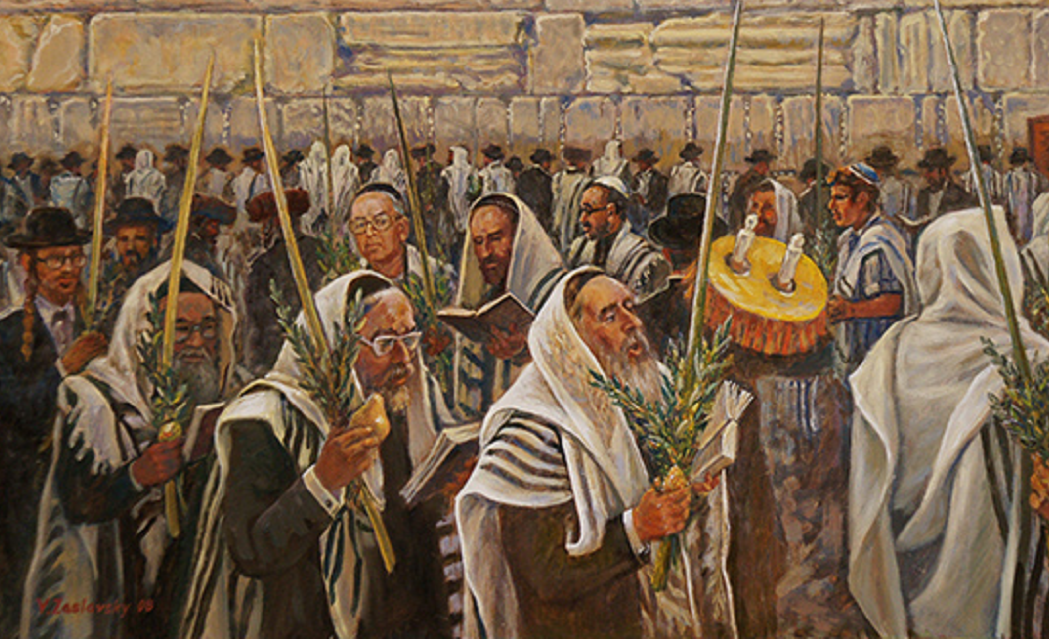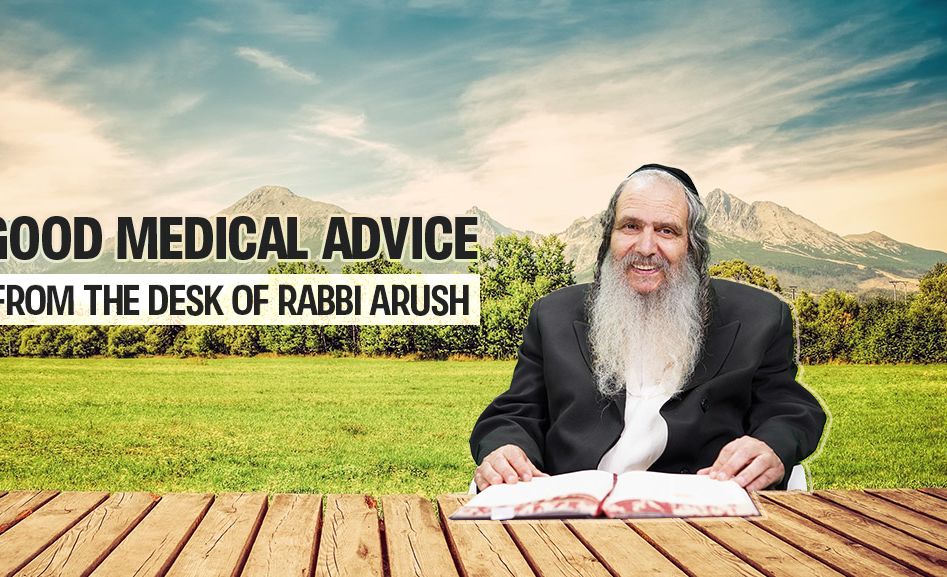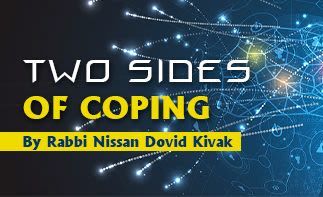
Disinterest or Enthusiasm?
Disinterest – this is the ailment of our generation. How much time does it take the average person to begin the morning prayers from the time he wakes up?

Translated by Yehoshua Jacobson
Disinterest – this is the ailment of our generation. How much time does it take the average person to begin the morning prayers from the time he wakes up? The journey from the door-step of our houses to that of the shul can oftentimes seem like an eternity. Every morning people ask themselves: “what am I getting up for?” most of the tasks and obligations that the new day presents us with could wait a little longer, no need to rush, and why should we rush anyway – this is how the world looks through tired eyes.
Yet not at all times does the body act in such a fashion – there are some mornings when we merit to a rather enthusiastic greeting on its part. If something special and joyous is expected to happen that day then a pulse of liveliness flows through our veins, a spirit of life envelopes us and a force of aspiration enlivens our limbs. At these times heaviness is no longer something inevitable and laziness no longer seems innate.
“…and he (Avraham) saw, and ran to greet them” (Bereishit 18,2)
Clear blue skies without the trace of a cloud, the sun is shining with all its might, beating down upon the scorching desert sands. Anyone who holds his life to be dear refrains from traveling in such conditions and the large tent that is renowned amongst the desert wayfarers stands in silence. Its openings invitingly face all four directions, yet on this day no living being has accepted their summons. At the entrance to one of them sits Avraham Avinu, pining for someone with whom to do kindness. We are all familiar with the rest of the story; suddenly on the horizon appear three travelers, their clothing a clear indication of the Arabic descent. The hundred year old man who just two days before had circumcised himself, leaps from his place in excitement and runs to greet them, his every limb resonating with joy; that only they should not pass him by, that only they should agree, if only for a short while, to be his guests.
“Then Avraham ran to the cattle”, “Hurry…kneed and make cakes!” (18; 6 &7). Avraham Avinu, the light of holiness and emunah in the world, the leader and teacher of thousands, aged and dangerously ill, is completely entrenched in one thing – to make his three guests feel as good as possible.
There are many ways in the fulfillment of mitzvots; particulars and stringencies, beatifications and opinions. Yet it is not every day that one sees elderly men jumping with excitement at the sight of their Tefillin or Tzitzit. Even the young and healthy, whose strength is still with them, are no longer filled with youthful joy and excitement at the sight of a passing mitzvah. Hospitality was not the scarcest of mitzvot to be found in Avraham’s tent; tens of times a day did similar stories take place within it. Nevertheless, three guests that arrived during a heat wave caused our forefather such excitement that a number of verses in the Torah were dedicated uniquely for it.
Form where does one attain such a heart? How can such liveliness and joy be acquired?
Hitavut (enthusiasm) and chiyut (liveliness) – this is completion.
By Hashem there is no concept of quantitative measurement; a lot or a little, long or short, these do not determine something’s value. He asks from us one thing – a heart. Take interest, be enthusiastic; for without these no action is of worth.
What is the level of perfection that we are meant to attain? If one seeks to know how the perfect man appears let him look at Avraham Avinu, the first to be circumcised and the first to reach completion. The brit brought Avraham to perfection and this completion came to expression in the form of passionate enthusiasm. Liveliness and z’rizut (alacrity) are clear indications of completion.
We have heard about z’rizut since our earliest years, from our first teacher and all who followed him. Good educators have always spoken about z’rizut, it leads to many wonderful things and there is no one who does not seek to acquire such a trait. Nevertheless, alacrity and liveliness still remain scarce commodities.
Z’rizut as an Inheritance
As strange as it may sound, z’rizut and enthusiasm are inherently a part of us. In a place much deeper than laziness and heaviness can be found within us a spirit of life that is alert and filled with holy desire. Way before sadness and laziness, our holy forefathers implanted in us the good character traits that flowed through their veins – chiyut (liveliness) and z’rizut.
In what areas does laziness take hold of us? Generally, it is regarding things in which we don’t find much interest. When holiness hides its face, when it seems that no one really takes any notice of us and when we are sure that no one is waiting for us to begin our morning prayers, then desire too turns its countenance from us. Behind the simple actions must be a motor that powers them, one that can get things moving, that can arouse some feeling and uplift our thoughts. When we merit that Hashem reveals himself, when we sense the imminence of hashgachah pratit (divine providence), there is a good reason to be lively and enthused.
This is what happened to Avraham Avinu, “and Hashem appeared to him” (18, 1) – if Hashem Himself comes to your home, takes interest in you and reveals himself, how could one not be exited. But what can we do when we see nothing of this and a heavy question weighs upon us – ‘Is anyone at all interested in me…’
Indeed, even for Avraham things weren’t so simple, to the revelation of “And Hashem appeared to him…” he merited because “…he was sitting at the entrance to the tent in the heat of the day”. Reb Nosson explains that the “heat of the day” refers to the burning lusts and passions of the evil inclination that Avraham endured when Hashem was hidden from him. Specifically amidst this confusion and darkness did this great revelation of G-dliness take place. But how?
To wait and to wait…
“And he was sitting at the entrance to the tent” – here the secret is hidden. The entrance is not always so welcoming; it is safe to assume that we will encounter obstacles. The chambers of holiness and feeling are often sealed with frightening and seemingly impenetrable doors. At such times the feeling we get is: “I’m on the outside, why should I be lively?” If we add “heat of the day” to this difficult circumstance there is no way that we can make the journey to our morning prayers with desire.
But our first forefather acted differently, he sat there at the entrance and waited. The heat of the day did not deter him; neither did the lusts and confusion. He was able to sit like that and wait only because he knew that specifically there, amidst the darkness and raging battle of good and evil, within the lusts of the evil inclination and underneath the weakness and pain, Hashem is to be found.
Correct, I may not be able to see Him clearly. On the contrary, they are screaming quite the opposite, but the “opening of the tent”, the waiting at the entrance to the tent of holiness, I will never abandon. At times like these, of waiting in expectation we need to hold on to the advice of Ayeh – the knowledge and faith that Hashem is here, with me and next to me (see Likutey Tinyana, lesson 12). This is where we draw the strength to wait from and when we keep waiting it finally happens, “… And Hashem appeared to him”.
Courtesy of the “Gates of Emunah Publication”










Tell us what you think!
Thank you for your comment!
It will be published after approval by the Editor.